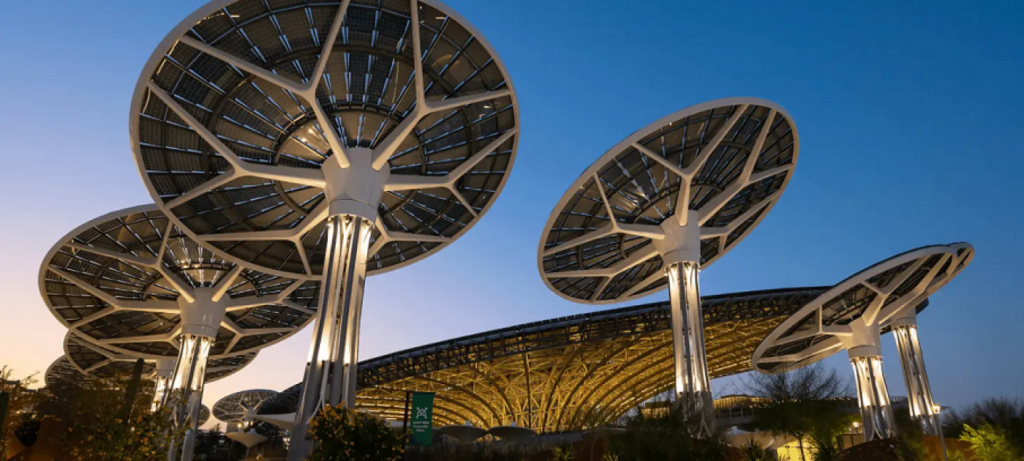If you go back and look at old stories on COP27, which we do not recommend unless your idea of “fun” is as off-centre as our own so we did it for you and please send us money for therapy as well as research, you read stuff like The Economist’s semi-chirpy: “Next week, delegates from all over the world will flock to Egypt for COP27, the United Nations’ annual climate summit. They will discuss what governments must do to reduce their greenhouse-gas emissions enough to avoid the most dangerous levels of global warming.” Then the author suggested seven books under the heading “What to read to understand climate change” including How to Avoid a Climate Disaster by Bill Gates and Climate Justice by former Irish president Mary Robinson under whom nothing was done but never mind. It also recommended the 6th IPCC Assessment Report but only the “Summaries for Policymakers” which are the last part of the IPCC’s work you should actually read because they’re the bit where the politicians misrepresent what the scientists said based on their own preconceptions and then go “scientists say” when challenged. From there the list really goes downhill.
Next is How to Blow Up a Pipeline by Andreas Malm. If we were to advertise How to Blow Up a Magazine they might call a cop. But they hardly need our help when their recommendations on understanding climate also include the novel The Ministry for the Future by Kim Robinson, a self-proclaimed “democratic socialist” who sneers at libertarianism and got his PhD in English (his initial advisor was a Marxist). And a book recommending geoengineering. But nothing even by a lukewarm sceptic like Steven Koonin that would reveal another side to the story. Such is modern journalism.
Oh, and the journalist in question appears to have a BA in “Philosophy, Politics & Economics”. So they’re um not a “climate scientist”. But the right sort of lay person is allowed to have firm opinions in that field, provided they’re ones like:
“burning fossil fuels, humans have altered Earth’s atmosphere, which has consequences for almost everything on the planet. It is reshaping weather systems and coastlines, transforming where crops can be grown, which diseases thrive, and how armies fight. Rising temperatures affect geopolitics, migration, ecosystems and the economy. Over the next century and beyond, climate change—and the responses to it—will remake societies and the world.”
Whereas if you go “Hey, isn’t climate variable?” you get the knuckle-bone shampoo over your lack of formal credentials.
Later the Economist sobered up a bit with “The world is missing its lofty climate targets. Time for some realism/ Global warming cannot be limited to 1.5°C”. It said it was OK, sort of, but “First, cutting emissions will require much more money. Roughly speaking, global investment in clean energy needs to triple from today’s $1trn a year, and be concentrated in developing countries, which generate most of today’s emissions.”
It added that “fossil fuels will not be abandoned overnight”, an insight which alone surely justifies the cost of one’s subscription. And also that “because 1.5°C will be missed, greater efforts must be made to adapt to climate change.” It allowed that “Adaptation has always been the neglected step-child of climate policy, mistrusted by activists as a distraction from cutting emissions or, worse, an excuse not to make any cuts” but insisted that “a lot of adaptation is affordable” before recommending geoengineering, sort of. And then it sobbed “Overshooting 1.5°C does not doom the planet. But it is a death sentence for some people, ways of life, ecosystems, even countries.” We await the demise of said countries with a sceptical wait.



To be fair, quoting your quote: "“burning fossil fuels, humans have altered Earth’s atmosphere, which has consequences for almost everything on the planet. It is reshaping weather systems and coastlines, transforming where crops can be grown, which diseases thrive, and how armies fight. Rising temperatures affect geopolitics, migration, ecosystems and the economy.", all that is being said is technically correct...
Humans have indeed altered the atmosphere, we put more CO2 in it. This has been universally beneficial for plant-life, up to a 25% increase in "green". Changing plant-life that much does affect weather systems, usually by making ecosystems more robust, preventing long-term droughts, etc. Crops can now be grown in more places with bigger yields.
As for the other points, that's just people taking advantage of changing situations as a result of the above.
Speaking of Steven Koonin, he showed up last month at the Universities of Maryland, Dallas and Oklahoma State (sponsored by something called the Steamboat Institute) to debate the negative of the proposition “Climate science compels us to make large and rapid reductions in greenhouse gas emissions.” The audiences were polled before and after the debates. The votes for "Disagree" - the position Koonin was arguing - were as follows:
Pre-Debate Post-Debate
University of Maryland 14% 36%
University of Dallas 37% 56%
Oklahoma State 61% 75%
If moving opinion to the side you're arguing counts as a win, that's a pretty good winning streak. The most interesting result IMO was at the University of Maryland, where you'd expect an audience with not much by way of knowledge or connections with the oil patch. The affirmative there was argued by Harvard's "Director of the Center for the Environment".
Here's a link to the debates:
https://www.steamboatinstitute.org/the-campus-liberty-tour/
I have been a subscriber to The Economist for several years, and I admire its well-researched articles on all manner of issues. But when it gets onto the subject of climate it goes completely haywire. To use the vernacular, it has swallowed every drop of the climate Kool-Aid. Pity.